In a world that’s changing faster than ever before, it’s intriguing to imagine what our planet might look like a century from now. While we can’t predict everything, experts and futurists offer some educated guesses about what our lives might entail. From technological breakthroughs to environmental shifts, the next hundred years promise both challenges and opportunities. Whether you’re a tech enthusiast or an environmental advocate, considering these possibilities might inspire you to think differently about the present—and prepare for the future. Let’s dive into 13 intriguing ways our planet might transform over the next century.
1. Climate Change Creates New Ecosystems

Over the next hundred years, climate change will continue to reshape our planet’s ecosystems. Rising temperatures and shifting weather patterns will create environments that differ significantly from what we know today. You’ll likely see more subtropical plant life moving north, altering not just the landscape but also the types of wildlife that can thrive. According to a study by the National Academy of Sciences, species are already migrating in response to these changes, and this trend is expected to accelerate. As a result, the biodiversity of certain regions will change, bringing both new opportunities and challenges for conservation efforts.
These new ecosystems might feel like a mixed bag of wonder and loss. On one hand, you may witness new species thriving in places they’ve never been before, offering new opportunities for study and appreciation. On the other hand, the rapid rate of change could lead to the extinction of species unable to adapt quickly enough. You might feel a sense of nostalgia for the landscapes and wildlife that once were. This complex tapestry of change will require societies to think creatively about conservation and adaptation strategies.
2. Urban Living Takes Sustainable Leap
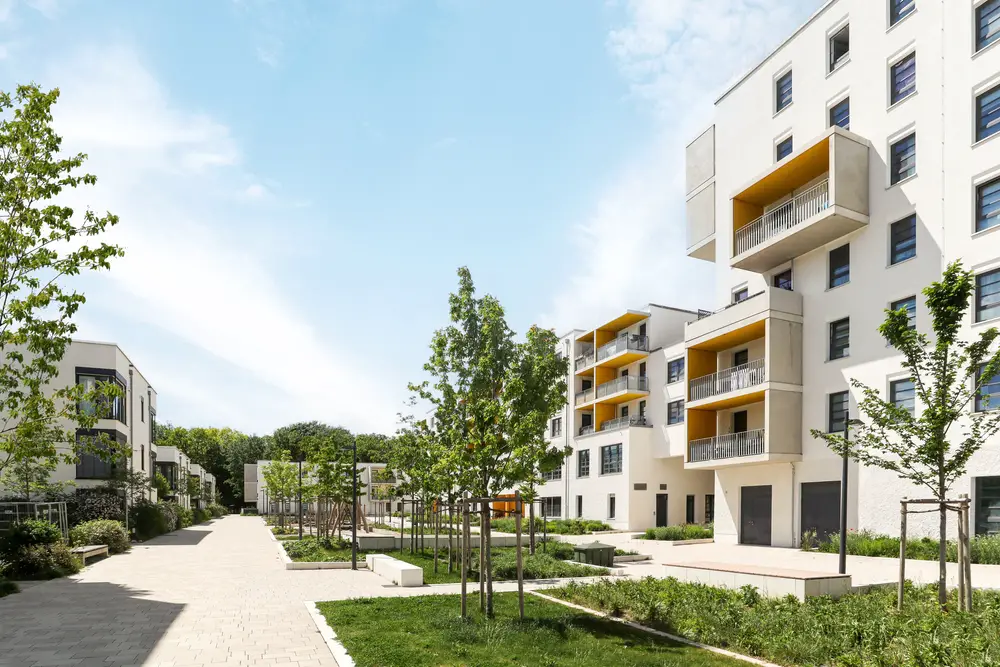
Imagine cities designed with sustainability as their core principle. In the next century, urban areas will likely transform into eco-friendly hubs that prioritize green spaces, renewable energy, and walkable communities. You’ll probably find yourself living in a city that generates most of its energy from wind and solar sources while employing smart technology to optimize electricity usage. Public transportation systems might become more efficient and ever-present, making car ownership feel as outdated as horse-drawn carriages. These changes aim to create urban environments where people and the planet thrive in harmony.
The shift to sustainable cities will also change the way communities interact. You’ll find that social life adapts, with more communal spaces fostering a sense of community and collaboration. As urban areas become more green-driven, they may also become more resilient to climate impacts like flooding and extreme heat. The emphasis on sustainable living will encourage a lifestyle where consumer habits align more closely with ecological well-being. This transformation could redefine what we perceive as desirable in urban living, making environmental considerations a key part of the conversation.
3. Oceans Rise and Redefine Coastlines

Rising sea levels will inevitably redefine global coastlines over the next century. As polar ice caps melt, the oceans are forecasted to rise, impacting coastal communities worldwide. You may find that some of the world’s most iconic cities face challenges from routine flooding and erosion. According to the Intergovernmental Panel on Climate Change (IPCC), even moderate sea-level rise could displace millions of people, creating new economic and social challenges. This looming reality will necessitate innovative solutions to protect coastal areas or adapt to a world with less habitable land.
You’ll likely see a surge in the construction of sea walls, water barriers, and even floating cities as we adapt to these changes. While some regions will invest in infrastructure to combat rising waters, others might abandon vulnerable areas altogether. Real estate markets will shift as people reconsider the desirability of coastal properties. This shift could lead to a population inland migration, creating new opportunities and demands on those communities. Adaptation will be key, requiring both global cooperation and local innovation to manage the impending changes.
4. Renewable Energy Dominates
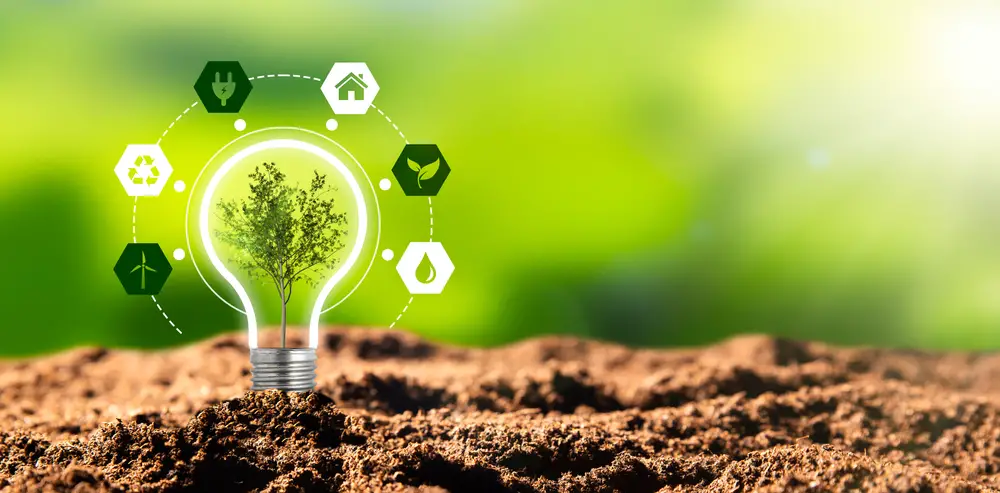
In the future, renewable energy will likely become the primary source of power for the planet. Solar, wind, hydroelectric, and geothermal energy are expected to become more efficient and widespread as technology advances. You’ll probably live in a world where fossil fuels have been largely phased out, replaced by cleaner and more sustainable alternatives. As a result, energy costs could become more stable, and the geopolitical landscape may shift, with less emphasis on oil-rich countries. This transition to renewable energy sources will be a significant factor in reducing global carbon emissions.
The expansion of renewable energy will also change the way you interact with the grid. Smart technology may allow for more personalized energy management, enabling you to monitor and optimize your consumption. This decentralization of energy production could empower communities, making them less reliant on large, centralized power plants. You’ll likely see an increase in local energy cooperatives, where neighborhoods generate their power through shared solar panels or wind turbines. This democratization of energy could lead to more equitable access and distribution, fostering a more sustainable society.
5. Technological Advances in Healthcare

The next century promises remarkable advancements in healthcare, driven largely by technology. You can anticipate a future where personalized medicine and AI-driven diagnostics become the norm. Technologies like CRISPR and gene editing may offer solutions to previously untreatable genetic conditions. According to a report by the World Health Organization, the integration of technology in healthcare is expected to improve patient outcomes and streamline treatments. This evolution will likely lead to longer and healthier lives, transforming the healthcare landscape in unprecedented ways.
Healthcare will become more preventive than reactive, focusing on early detection and individualized care plans. You might find yourself participating in regular health monitoring using wearable devices that track vital signs in real-time. AI algorithms could analyze this data to offer personalized health advice or alert you to potential issues before they become serious. These tools will empower you to take more control over your health, fostering a proactive culture of well-being. However, these advancements will also require robust data privacy protections to ensure that personal health information remains secure.
6. Artificial Intelligence Enhances Daily Life

Artificial Intelligence (AI) is set to revolutionize how we live and work over the next century. Imagine a world where AI assists you in almost every aspect of daily life—from optimizing work productivity to managing your household. You might rely on AI-driven personal assistants to organize your schedule, shop for groceries, or even suggest new hobbies. In the workplace, AI could handle routine tasks, freeing you to focus on creativity and strategic thinking. As AI technology evolves, it will likely become more intuitive, making interactions feel natural and seamless.
While AI offers convenience and efficiency, it also raises important ethical and social questions. You’ll need to consider how much control you’re willing to cede to machines, especially when it comes to data privacy and decision-making. The widespread use of AI could also disrupt job markets, necessitating new skills and career paths. Society will have to navigate these challenges carefully to ensure that AI benefits everyone. Balancing technological advancement with human values will be crucial as we embrace this new technological era.
7. Food Production Evolves
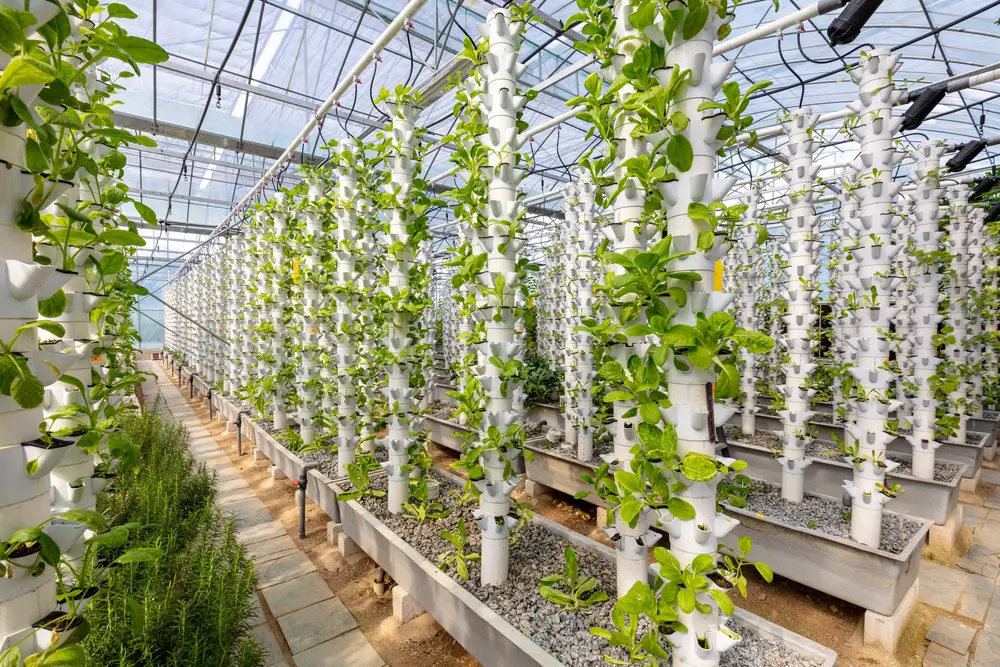
As the global population continues to grow, food production will need to evolve to meet increasing demands. By leveraging technology and sustainable practices, agriculture could become more efficient and less impactful on the environment. Innovations like vertical farming and lab-grown meat are expected to play a significant role in future food systems. According to a report by the Food and Agriculture Organization (FAO), these methods are not only more resource-efficient but also offer solutions to climate-related agricultural challenges. This evolution in food production will require a shift in how we think about food, both culturally and economically.
You’ll likely see urban areas incorporating more localized food production, reducing the need for long-haul transportation. This could lead to fresher produce and lower carbon footprints associated with food consumption. Advances in biotechnology might also offer enhanced crops that are more nutritious and resilient to climate stressors. These changes won’t just affect what you eat, but also how you relate to food and its production process. A growing awareness of sustainability will likely encourage more people to support and engage with these innovative food systems.
8. Transportation Is Revolutionized
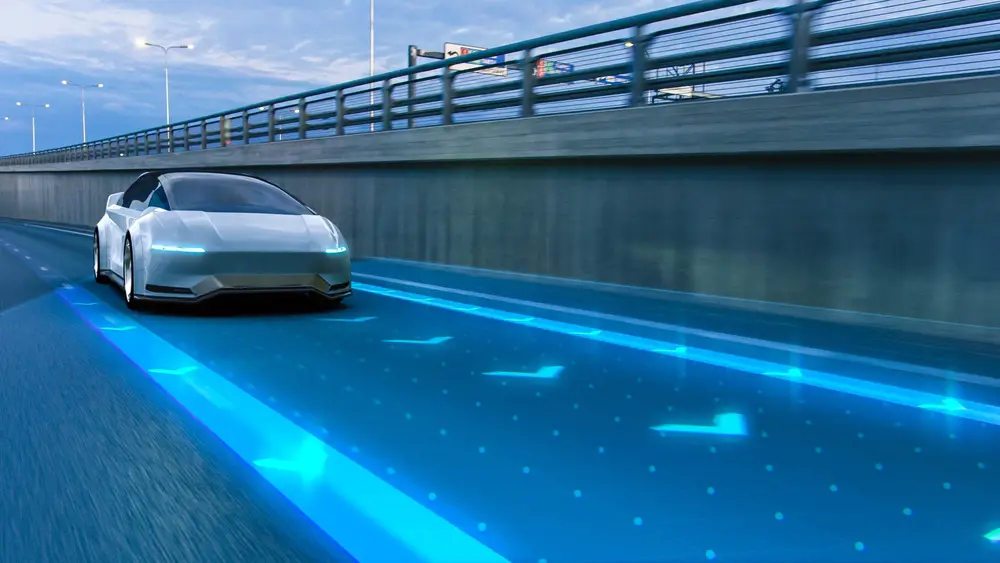
Transportation is on the brink of a revolution that could redefine how we move from one place to another. In the future, you might find yourself commuting in autonomous vehicles that make travel more efficient and safer. Electric and hydrogen-powered cars could replace gasoline vehicles, significantly reducing emissions. The concept of personal car ownership might become less relevant, with ride-sharing and public transit systems offering convenient alternatives. Hyperloop and other high-speed rail systems may connect cities, transforming commuting and reducing travel time.
This revolution in transportation will also have wide-reaching social implications. You might experience more flexible work arrangements, as commuting becomes more efficient and less time-consuming. Urban planning could change, with less need for parking spaces and more emphasis on pedestrian-friendly environments. Transportation innovations could also improve accessibility, making it easier for everyone to navigate cities. The way we design and interact with our environments will shift, reflecting the evolving landscape of transportation technology.
9. Water Scarcity Becomes a Pressing Issue

Water scarcity is expected to become one of the most pressing issues in the coming century. As populations grow and climate change alters precipitation patterns, securing a reliable water supply will become increasingly challenging. You might find that water conservation becomes ingrained in daily routines, as scarcity drives up costs and necessitates new habits. Technology will play a crucial role, with advancements like desalination and wastewater recycling helping to address shortages. However, these solutions will require significant investment and global cooperation to be effective.
The challenge of water scarcity will also spur innovation in agriculture and industry. You’ll likely see sectors adopting more water-efficient methods to reduce their consumption. This could lead to more sustainable practices that lessen the impact on local water resources. Governments and communities will need to collaborate on policies and initiatives that ensure equitable water distribution. This issue will not only be a matter of resources but also a catalyst for technological and social change.
10. New Materials Transform Construction
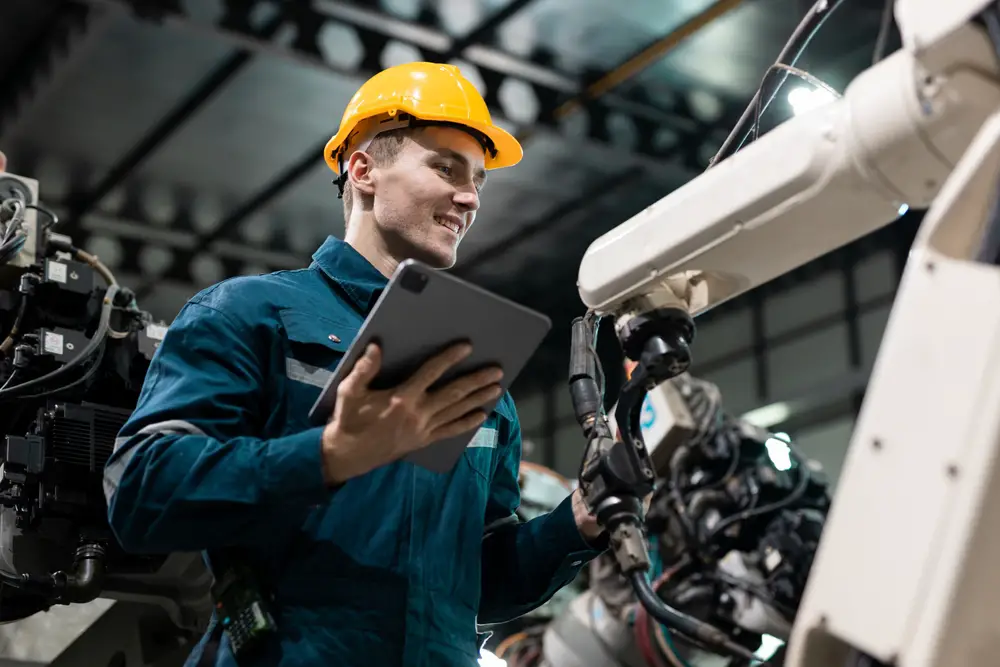
The construction industry will undergo a transformation as new materials reshape how we build. Innovations in sustainable, high-performance materials will offer alternatives to traditional options like concrete and steel. You might find future buildings incorporating materials that are stronger, lighter, and more environmentally friendly. These advancements will enable architects to design structures that are both aesthetically pleasing and energy-efficient. The shift toward sustainable materials will be driven by the need to reduce the carbon footprint of the construction industry.
This evolution will have significant implications for urban landscapes. You could see cities with buildings that adapt to their surroundings, incorporating smart technology to optimize energy use. The use of modular construction techniques might also become more common, speeding up building processes and reducing waste. These changes will require new skills and approaches in architecture and construction. As a result, the industry will need to evolve to meet the demands of a more sustainable future.
11. Education Adapts to Future Needs
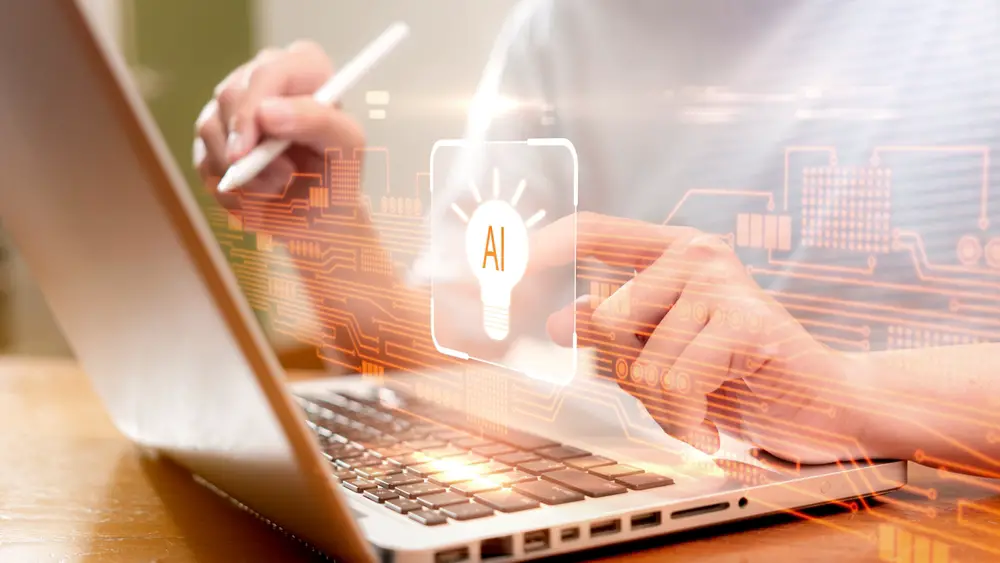
Education will evolve to meet the changing demands of the future, focusing more on skills that align with an ever-shifting world. Traditional methods of teaching might make way for more personalized and technology-driven approaches. You could find that virtual and augmented reality become essential tools for immersive learning experiences. The focus will likely shift from rote memorization to critical thinking and problem-solving skills. As the job market evolves, education systems will need to prepare students for roles that currently don’t even exist.
This shift will also change how education is accessed. You’ll likely see more online platforms offering a range of courses, making learning more flexible and accessible. The role of educators might evolve to become more about guiding and mentoring rather than just instructing. This democratization of education could foster a more inclusive environment where people from all backgrounds have the opportunity to learn and thrive. As education adapts, it will play a crucial role in preparing future generations for the challenges and opportunities ahead.
12. Space Exploration Becomes Mainstream
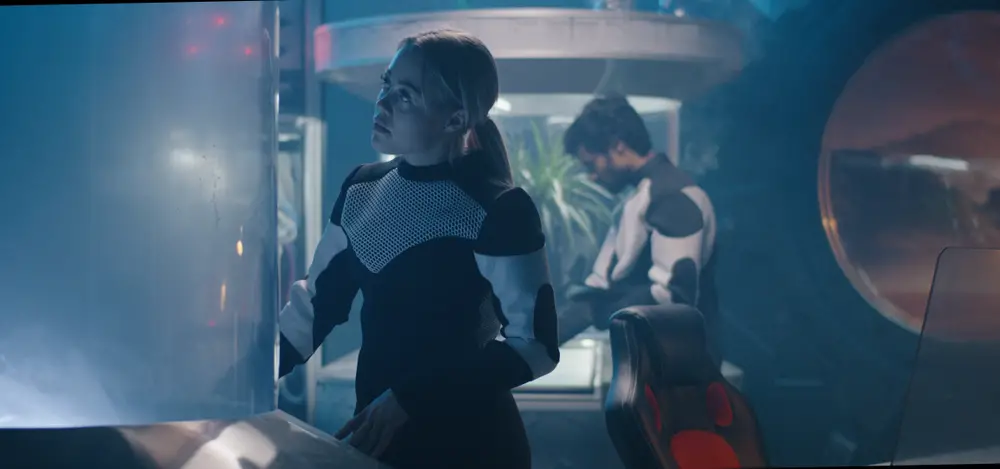
Space exploration is likely to become more mainstream in the next century, opening up new frontiers for humanity. With advancements in technology and reduced costs, you might find space travel becoming accessible to more than just astronauts and billionaires. Companies like SpaceX and NASA are already working on missions to the moon and Mars, setting the stage for a new era of exploration. This expansion into space could offer solutions to some of Earth’s most pressing problems, such as resource scarcity and overpopulation. The dream of living or working in space colonies might become a reality sooner than you think.
This new era of space exploration will also inspire a sense of wonder and possibility. You’ll likely see a surge in interest in STEM fields, as young people are inspired by the possibilities that space holds. The challenges of space travel will demand innovative solutions, driving technological advancements that could benefit life on Earth. This exploration will also raise important questions about ethics, governance, and international cooperation. As humanity reaches for the stars, the journey will redefine our understanding of what is possible.
13. The Internet Connects Everything
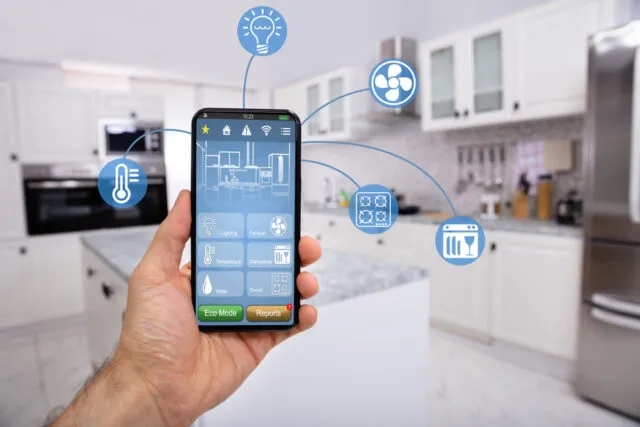
The future promises an even more interconnected world where the Internet of Things (IoT) connects every aspect of our lives. You might live in a smart home where appliances, lighting, and security systems communicate seamlessly. This connectivity will extend beyond personal spaces, integrating into cities with smart grids and infrastructure. The internet will facilitate real-time data sharing, optimizing everything from traffic management to energy consumption. This hyper-connected world will offer unprecedented convenience and efficiency.
However, this interconnectedness will also require robust cybersecurity measures. You’ll need to be more aware of the potential risks associated with data privacy and security. As more devices become connected, the challenge of protecting personal and sensitive information will grow. Societies will need to establish strong regulations and ethical guidelines to manage this digital landscape. Navigating the pros and cons of a fully connected world will be one of the defining challenges of the century.
